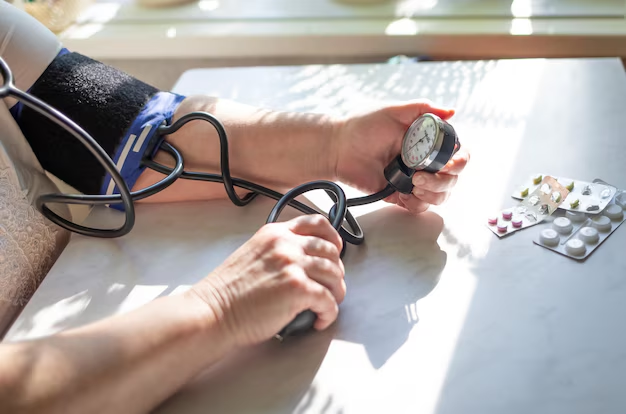Your Guide to What Hypertension Does To Your Body
What You Get:
Free Guide
Free, helpful information about HyperTension FAQ and related What Hypertension Does To Your Body topics.
Helpful Information
Get clear and easy-to-understand details about What Hypertension Does To Your Body topics and resources.
Personalized Offers
Answer a few optional questions to receive offers or information related to HyperTension FAQ. The survey is optional and not required to access your free guide.
How Hypertension Affects Your Body—And What You Can Do About It
Hypertension, commonly known as high blood pressure, is often referred to as the "silent killer." This is due to its ability to wreak havoc on your body without showing any noticeable symptoms early on. Understanding how hypertension affects your body is crucial for recognizing its dangers and taking preventive steps.
The Cardiovascular System Takes the Hit
At the core, hypertension places an extra burden on your cardiovascular system. When your blood pressure is high, your heart has to pump against higher resistance. Over time, this makes the heart muscle thicken and lose its efficiency, increasing the risk of heart attacks and heart failure. Furthermore, the force of the blood can damage arterial walls, making them more prone to plaque buildup—a condition known as atherosclerosis. This escalates the risk for heart diseases and strokes.
Damage to Vital Organs
Hypertension doesn't stop at the heart; it targets multiple organs, putting stress on the kidneys, brain, and eyes as well. The kidneys filter waste using tiny blood vessels that are susceptible to damage from high blood pressure. Over time, this may lead to kidney failure. Moreover, the brain's delicate blood vessels can become weakened, leading to a higher risk of strokes. Eye damage is another potential complication, as hypertension can harm the blood vessels in the retina, eventually resulting in vision problems.
The Silent Struggle with Lifestyle Diseases
Hypertension is often accompanied by other lifestyle diseases such as obesity, diabetes, and metabolic syndrome. These conditions have a cyclical effect, exacerbating the impact and risks associated with high blood pressure. Managing hypertension often requires lifestyle changes, including healthier eating habits, regular physical activity, and weight management—all strategies that also benefit other lifestyle diseases.
Importance of Regular Monitoring
Given its stealthy nature, regular blood pressure monitoring is vital. Many pharmacies offer free blood pressure checks, and investing in a reliable home monitor can be a wise decision. Early detection enables you to take charge of your health through lifestyle adjustments or medication, if necessary.
Navigating Financial Relief for Hypertension Management
Managing hypertension may entail financial burdens, from medication costs to regular check-ups. Thankfully, there are various financial aid programs and resources available to help with these expenses.
Exploring Assistance Options 🏥💳🎓
- Medicare/Medicaid: These programs can assist with the cost of medications and healthcare services for eligible individuals.
- Patient Assistance Programs (PAPs): Many pharmaceutical companies offer programs to help people afford their medications.
- Healthcare Grants: Some non-profit organizations provide grants for medical expenses or the purchase of monitoring equipment.
- Debt Relief Solutions: If healthcare costs have led to significant debt, consider tailored debt consolidation services to manage your financial commitments more efficiently.
- Educational Opportunities: Look into health education grants, which may offer funds to learn about managing hypertension and related health conditions.
High blood pressure doesn't have to be a life sentence. By understanding its effects and knowing where to find support, you can take proactive steps toward a healthier future while alleviating the financial pressures it may pose.
What You Get:
Free HyperTension FAQ Guide
Free, helpful information about What Hypertension Does To Your Body and related resources.

Helpful Information
Get clear, easy-to-understand details about What Hypertension Does To Your Body topics.

Optional Personalized Offers
Answer a few optional questions to see offers or information related to HyperTension FAQ. Participation is not required to get your free guide.


Discover More
- a 66 Year Old Female With a History Of Hypertension
- Are Eggs Bad For Hypertension
- Are Eggs Good For Hypertension
- Are Endocrine Disorders Causing Hypertension Rare
- Can Adderall Cause Hypertension
- Can Alcohol Cause Hypertension
- Can Allergies Cause Hypertension
- Can Anemci People Get Hypertension
- Can Anemia Cause Hypertension
- Can Antibiotics Cause Hypertension
